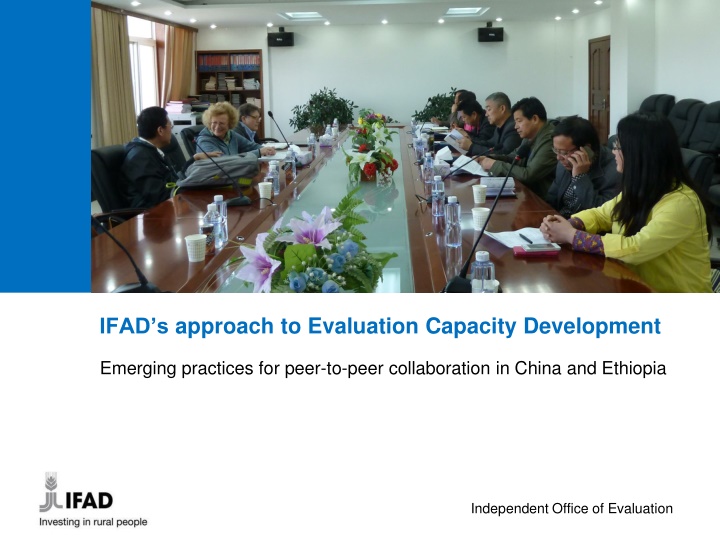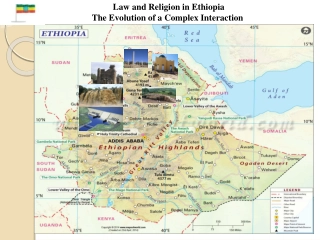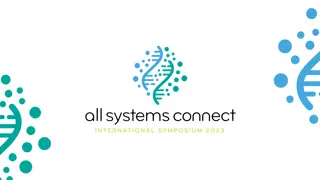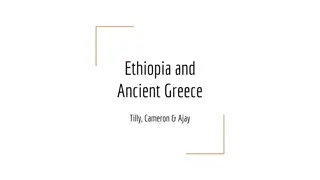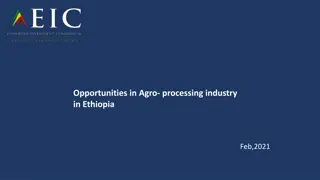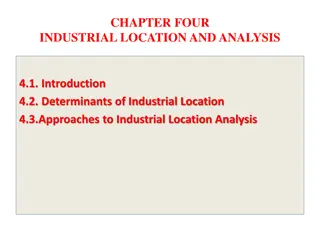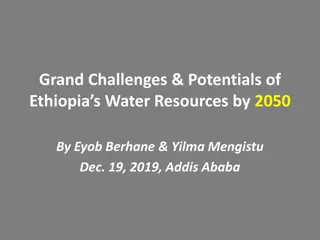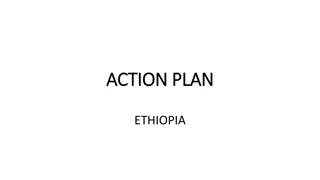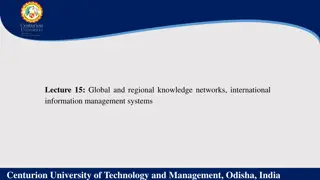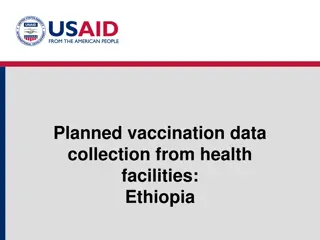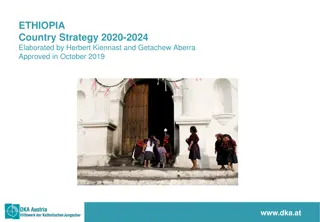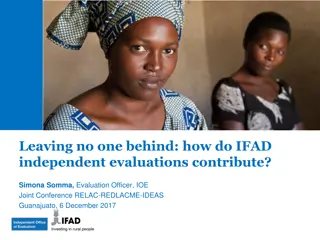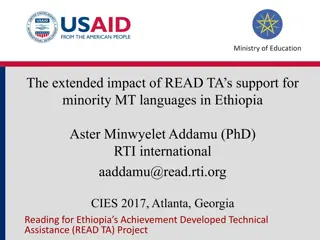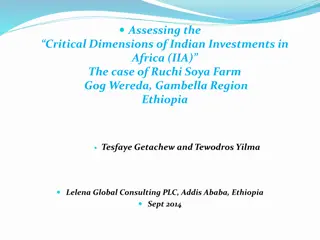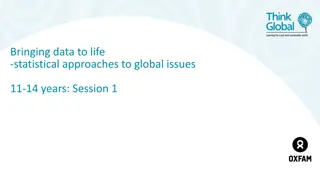IFAD's Evaluation Capacity Development Practices in China and Ethiopia
IFAD's peer-to-peer approach in Evaluation Capacity Development focuses on systemic, institutional, and individual levels. Collaboration with institutional partners in China and Ethiopia, supported by contextual analysis and collaborative evaluation, enhances evaluation practice and capacity building. Explore emerging practices for peer-to-peer collaboration and knowledge sharing.
Download Presentation

Please find below an Image/Link to download the presentation.
The content on the website is provided AS IS for your information and personal use only. It may not be sold, licensed, or shared on other websites without obtaining consent from the author.If you encounter any issues during the download, it is possible that the publisher has removed the file from their server.
You are allowed to download the files provided on this website for personal or commercial use, subject to the condition that they are used lawfully. All files are the property of their respective owners.
The content on the website is provided AS IS for your information and personal use only. It may not be sold, licensed, or shared on other websites without obtaining consent from the author.
E N D
Presentation Transcript
IFADs approach to Evaluation Capacity Development Emerging practices for peer-to-peer collaboration in China and Ethiopia Independent Office of Evaluation
Elements of IFADs peer-to-peer approach Systemic Level Contextual analysis (political economy) Networking, peer-to-peer learning Peer review (guidelines, products) Institutional Level Supply Demand Capacity friendly evaluation Knowledge sharing, dialogue Collaborative evaluations Individual Level Training, mentoring
Institutional Partners Institutional cooperation as starting point for ECD China: Statement of Intent with Ministry of Finance of the Peoples Republic of China Ethiopia: Planning and Programming Directorate (PPD) of the Ministry of Agriculture and Natural Resources and the Ministry of Livestock and Fisheries; Ethiopian Agriculture Transformation Agency (ATA); Ethiopian Evaluation Association (EEvA) Entry point through formal cooperation partners Independent Office of Evaluation
Contextual analysis Evaluation Capacity Mapping provides contextual analysis China : Cross-sectoral ministries (e.g. MOF) have evaluation functions, but limited capacity to guide sectors; sector guidance mainly on M less on E; institutional independence of evaluation not given; some individual capacities and nascent network, e.g. education; Ethiopia : Very little tradition of evidence-based policy development; GoE commitment on M&E system and adoption of results-based approach; EEvA established, developing the Ethiopian Evaluation standard; Lack of systematic data management system, technical skills and adequate human capacity financial resources and dedicated budget Evaluation Capacity Mapping helps to position cooperation within the political economy of evaluation; adds important systemic dimension to ECD Independent Office of Evaluation
Collaborative evaluation Participation of partners in field work and debriefing, less in design For CPEs, IOE preparatory mission to identify key questions with in- country stakeholders; draft approach paper with them for comments Balancing IOE independence with partner involvement China: Partners from MOF and MOA joined project evaluation mission; worked on selected evaluation question Ethiopia: MoA PPD staff participation in the evaluation of the Poverty Investment Framework; pilot ex ante impact evaluation by ATA Opportunity to enhance evaluation practice, pilot innovative methods Useful for IOE to engage partners in evaluation practice; triangulate perspectives on project success and failures Evaluation practice is an integral part of evaluation capacity building Enhanced depth of exposure would require change of IOE evaluation practice: e.g. Participation in design as an opportunity to unpack the theory of change underpinning the evaluation; larger team with more national evaluators; all requires additional resources. Independent Office of Evaluation
Peer review Mutual review of guidelines and standards for learning and to strengthen credibility of evaluation standards, guidelines and products China: MOF China guidelines for IOE comments Ethiopia: Development of Ethiopia evaluation standards supported by IOE IOE guidelines shared with partners Process of reviewing guidelines as opportunity to reflect on evaluation practice, enhance common understanding of evaluation principles and mobilise support from evaluation peers; successful process can be a key element of institutional capacity building Independent Office of Evaluation
Training and Knowledge Sharing China: Methodology workshop in July 2014 in Beijing (in conjunction with CPE China) SHIPDET Spring 2015 (Shanghai) - Well attended formal training, mainly targeted at evaluators and evaluation managers at the Provincial Departments of Finance - Useful event to present IFAD s approach to project evaluation - Interest to learn more about complex evaluations, e.g. country programme evaluations and synthesis Ethiopia: ECD Workshop on 6th Nov.2015 - IOE sponsored (from SDC funds) participation of Government of Ethiopia official in 2015 IPDET in Canada Strengthening individual evaluation skills and knowledge as integral part of ECD Skilled personnel may become evaluation champions Independent Office of Evaluation
Overall Lessons ECD activities are not cost-neutral Need to have an appropriate institutional partner in the concerned country to champion ECD Greater appreciation of the Independence of evaluation through ongoing dialogue Evaluation often perceived as control; less seen as learning opportunity to improve performance Practical evaluation cases can demonstrate the utility of evaluation and that investing in evaluations generates benefits greater than its costs ECD is a process that stimulates interest and demand; increases usefulness, credibility and rigour on the supply side Independent Office of Evaluation
